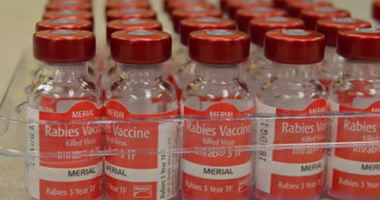Vaccinations

Vaccinations in Brampton
At McQueen Animal Hospital, we believe in an individually tailored vaccination protocol that is developed specifically for the needs and health of your pet. For example, a Chihuahua who is confined to an apartment complex and hardly sees the light of day will not require the same level of vaccination as a German Short-Haired Pointer who is constantly running through the bush in areas endemic for diseases such as leptospirosis. Similarly, a cat who is kept strictly indoors does not require the same level of vaccination or deworming as an outdoor cat who frequently hunts or fights with other stray cats.
While some vaccinations are mandatory as per the Government of Canada, such as rabies, we believe in minimal vaccination which is why we offer three year protocols for routine vaccinations such as Distemper and Rabies.
At McQueen Animal Hospital, we are focused on offering a vaccination protocol that is individually tailored and specifically developed keeping the health and needs of your dog. Vaccination needs vary from one breed to the other. For example, if you own a Chihuahua confined to your apartment, it gets hardly any exposure to daylight and therefore will need a lower of vaccination compared to a German Pointer who constantly runs through bushy areas with high potential for diseases like leptospirosis. Likewise, a cat that is strictly kept indoors will not need an identical level of vaccination/deworming compared to a cat that fights or hunts frequently with stray cats.
The Canadian government has mandated certain vaccinations like rabies. However, we are focused on minimal vaccination and offer 3-year protocols where routine vaccinations like Rabies and Distemper are involved.
Vaccines help in providing immunity against certain specific diseases. Depending on the specific needs of your pet a veterinarian can prescribe one or multiple shots that may either be administered together or following a vaccination schedule. At times, a booster or a second dose may be needed to enhance the immunity to a level necessary for protection against the disease. Our expert veterinarians can select from a range of vaccines to reduce or prevent the severity of many diseases that affect pets. All vaccines are mandatorily registered with the Canadian Food Inspection Agency. Your veterinarian can offer you complete guidance on the most appropriate vaccines for your pet and when it should be administered.
Core Pet Vaccinations or Immunizations
- DOG – Rabies & DA2PP (canine distemper, adenovirus, para-influenza, parvovirus)
- CAT – Rabies, FVRCP (Feline chlamydia, rhinotracheitis, calicivirus, pan-leukemia )
Additional Pet Vaccination Options;
Dog Vaccinations:
Leptospirosis,
Lyme,
Bordetella (Kennel cough)
Cat Vaccination:
Feline leukemia
How do vaccines work?
Vaccines, toxoids, and bacterins urge your pet to activate its own immune system.
When animals have early exposure to organisms that cause diseases, their immune system can remember such organisms and be better equipped to launch a quick fight and stave off the infection when the disease strikes again.
Does Vaccination or Immunization guarantee 100% protection?
Absolute protection from diseases may not be guaranteed always. The effectiveness of vaccines can be impacted by stress, nutrition, and low-level infections. The overall health of your pet when it is exposed to a disease-causing situation will determine whether your pet is able to ward off the disease or the disease itself wins. If your pet is sick or suffering severe stress when the vaccination is given may fail to offer the protective level of immune response to vaccine/s and consequently, your pet may not be able to resist an infection. Ensuring good housing, good nutrition, access to a clean environment and freshwater can significantly aid enhanced immunity.
Vaccines work like a training course for your pet’s immune system. They help in preparing the body for fighting diseases without exposure to disease symptoms. When external invaders like a virus or bacteria enter the body, immune cells known as lymphocytes launch the response through antibodies represented by protein molecules. The antibodies fight invaders called antigen offering protection from further infection. However, when the body confronts an invader for the first time, it takes several days for ramping up the antibody response. When the antigens are really nasty like in the case of whooping cough or measles virus, a couple of days tend to be too long and the infection can become lethal even before a counter-attack is launched by the immune system.
